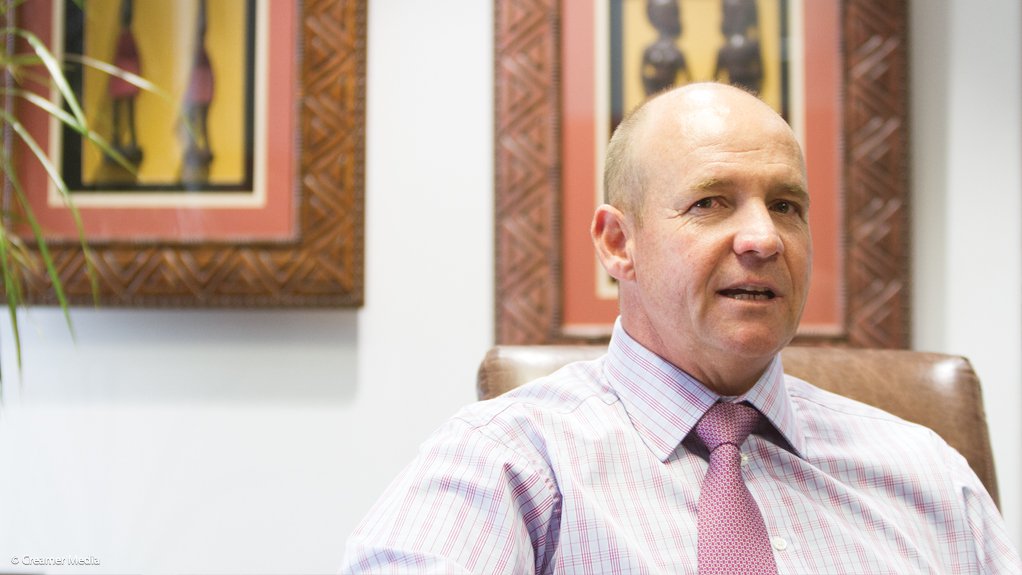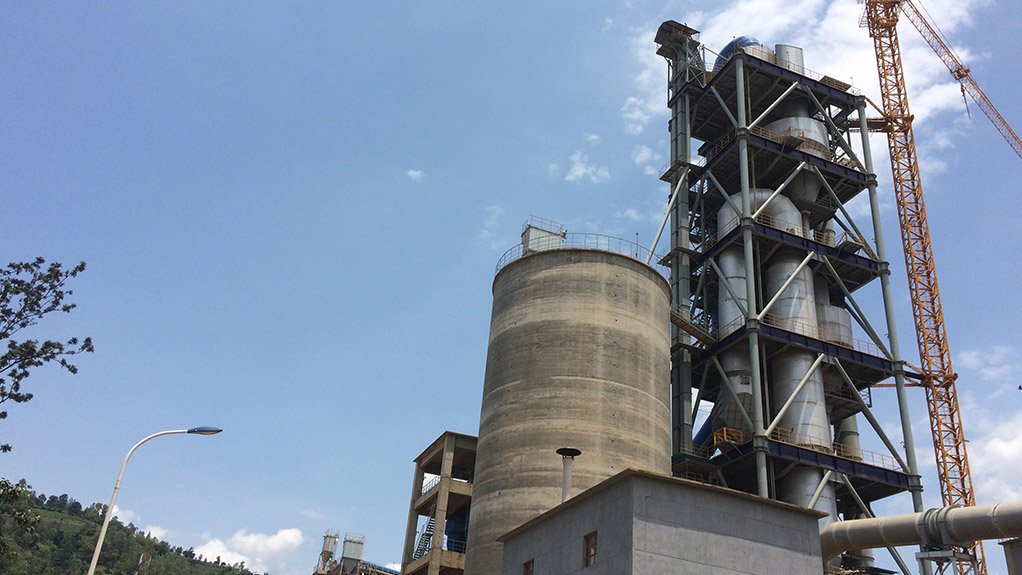South African cement producer PPC on Wednesday reported a 13% decrease in its earnings before interest, taxes, depreciation and amortisation (Ebitda), to R2.1-billion, paired with a 93% plummet in its headline earnings a share, to 7c apiece for the year ended March 31.
The JSE-listed company attributed the decreases, against a 5% increase in group revenue to R9.6-billion, to last year’s “unexpected” downgrade of its credit rating by Standard & Poor’s, which resulted in a liquidity crisis for PPC and abnormal finance costs being incurred in relation to a liquidity and guarantee facility put in place to ensure that PPC could meet its financial bond repayment obligations.
Nevertheless, through its R4-billion capital raise in March last year, the company achieved a net debt to Ebitda ratio of 2.3x, with PPC looking at further restructuring its debt to improve its balance sheet structure.
The company noted that it was also impaired by an International Financial Reporting Standard 2 charge, related to the unwinding of a broad-based black economic empowerment deal, unfavourable currency movements and the Southern Africa cement segment posting a 19% decrease in Ebitda relative to the previous year.
However, speaking to Engineering News Online, CEO Darryll Castle said the “big story” for the tough year under review, was the company delivering four big projects on the continent, on time and within budget.
This included the construction of the $82-million Harare mill project, in Zimbabwe, which is expected to reduce outbound logistics costs, while increasing accessibility to the northern markets; and the construction of a cement and clinker plant in the Democratic Republic of Congo, that was commissioned in February.
It also completed the construction of a $172-million 1.4-million-tonne-a-year plant, in Ethiopia, in early February 2017, and the construction of the new R1.7-billion one-million-tonne-a-year clinker production line at PPC Slurry, in South Africa, which will be commissioned in the first half of 2018.
“This is a big tick in the company’s column, as there was some doubt to whether PPC could achieve this. The next frontier now is ensuring these operations are profitable. These operations are in some very difficult places . . . it’s not easy to build projects on time and in budget in some of these jurisdictions,” Castle pointed out.
Meanwhile, he believed the slowing South African economy would impact on the construction and infrastructure industry in the year ahead; but, with debt tapering off as the company’s construction programmes were being completed, Castle noted that the company was well positioned for the medium-to-long term.
“As we start receiving cash flows from these new projects, we will have a lower capital burden. All-in-all, the equation is changing for PPC,” he said.
In South Africa, PPC’s cement sales volumes rose by 2% for the year, while fixed costs increased were well controlled, rising by only 5%.
Rest of Africa cement contributed R645-million to Ebitda; however, it has not contributed to profit after tax owing to operational ramp-up, depreciation and tax charges.
In Zimbabwe, volumes declined 3%, while selling prices, in US dollar, declined 10%. Botswana recorded flat volumes, with selling prices down 9% as a result of increased competition from imports from South Africa.
Edited by: Chanel de Bruyn
Creamer Media Senior Deputy Editor Online
EMAIL THIS ARTICLE SAVE THIS ARTICLE
ARTICLE ENQUIRY
To subscribe email subscriptions@creamermedia.co.za or click here
To advertise email advertising@creamermedia.co.za or click here















